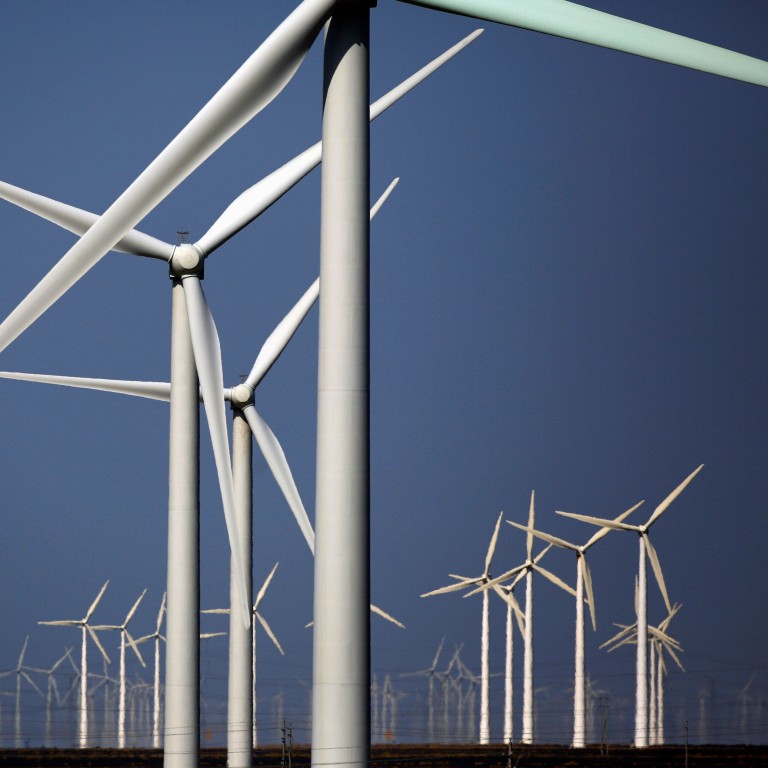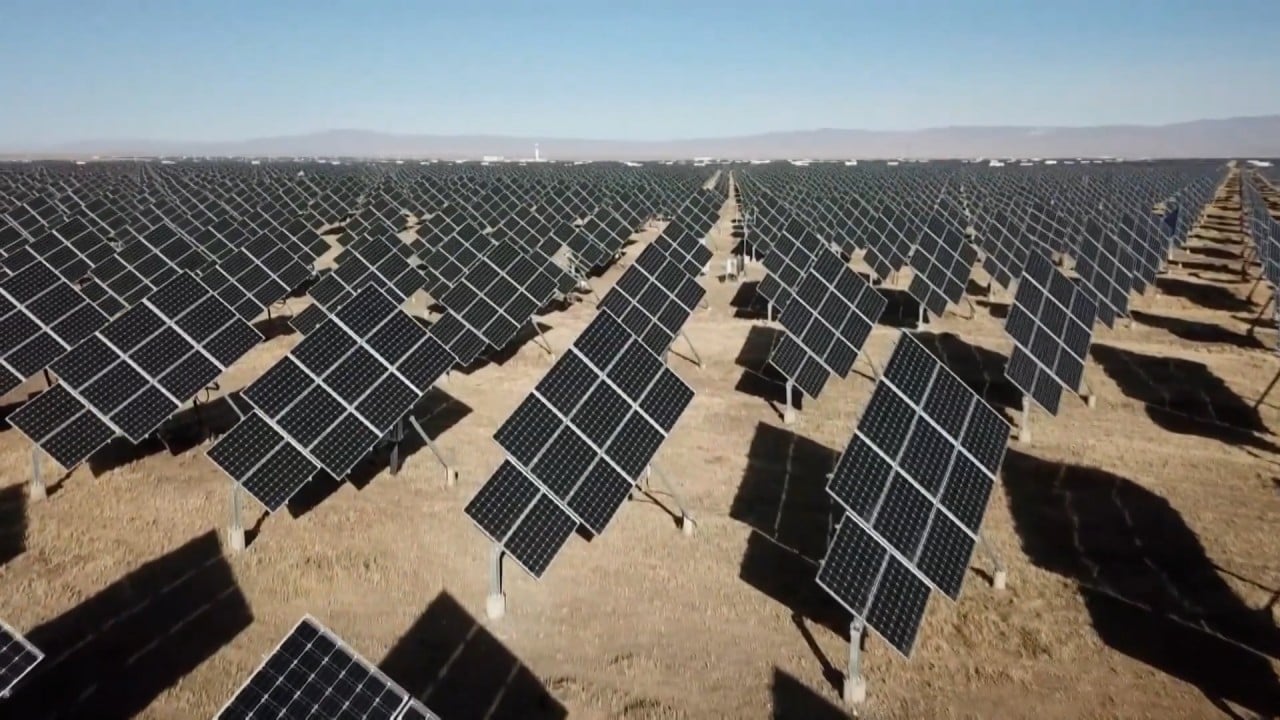
‘We must do it’: Xi Jinping stresses urgent need to meet China’s climate goals
- The country must take a path of green, low-carbon development, president tells Politburo
- Xi’s speech underscores the country’s difficulty in achieving its climate goals, analyst says
Of the seven Politburo Standing Committee members, Zhao Leji, who is head of the Central Commission for Discipline Inspection, was the only one absent from the meeting.
Xi pledged at the United Nations General Assembly in September 2020 that China would hit peak carbon emissions before 2030 and achieve carbon neutrality by 2060.
On Monday, Xi said China should focus on “four pairs of relationships” on its path towards the two goals, including the relationship between development and emissions reduction.
“Emissions reduction does not mean curbing productivity or shutting down [production to stop] emissions. It’s taking the path of green and low-carbon development … and achieving greater development in green transformation,” he said.
He said provinces should abandon the “one-size-fits-all” approach and should implement climate action plans based on the resources available and industrial distribution.
“[We should] improve the awareness of the whole country, strengthen coordination of policies and measures, and fully consider the objective reality of regional resources and industrial distribution [in making plans].”
Yang Fuqiang, a research fellow with Peking University’s Institute of Energy, said Xi’s speech underscored the country’s difficulty in achieving its climate goals.
“China aims to achieve socialist modernisation by 2035 and it has a long way to go,” he said, referring to the Chinese government’s plan to become a moderately developed country by 2035.
“China’s carbon emissions have not decoupled from economic development. The decoupling will occur when China hits peak carbon emissions.”
He said that meant economic growth and carbon emissions would grow in China in this decade.
China’s foreign trade volume topped US$6 trillion for the first time in 2021, after surpassing the US$5 trillion mark in the same year, according to customs data. The US$4 trillion mark was reached in 2012.
Xi also stressed the need to control consumption of fossil fuels and encourage the development of hydrogen and renewable energy.
He said the Communist Party’s leadership had an important role to play in achieving the carbon goals and localities should incorporate climate indicators into their economic and social development assessment system.
China has abundant renewable energy sources in the west of the country but much of its energy is used in the east.
What is green hydrogen and can it help China meet its carbon goals?
On Monday, Xi said China would build a new energy supply and consumption system based on big wind and solar power bases, low-emissions coal power plants near the bases, and ultra-high-voltage electricity transmission lines to transfer electricity.
Yang, from Peking University, said China should also relocate some high energy-consuming companies to the western region to make better use of its excess electricity production.
“The gap between the west and the east is getting bigger. It is one way to develop their economy. Otherwise, it may threaten China’s sustainable development,” he said.



